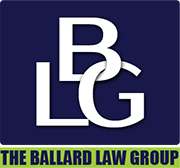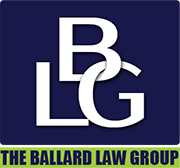When faced with serious financial difficulties, bankruptcy can be a responsible choice to get your finances back under control and move on toward a more secure financial future. When filing for a personal bankruptcy, a person can choose to file for a Chapter 7 or a Chapter 13 bankruptcy. These types of bankruptcy are different:
- Chapter 7 Bankruptcy: A chapter 7 bankruptcy is also known as a liquidation bankruptcy. In this type of bankruptcy, you liquidate or sell your assets of value to repay your creditors. Other debts, (credit card, utility, medical, etc.) are discharged.
- Chapter 13 Bankruptcy: A chapter 13 bankruptcy involves the creation of a debt repayment plan. You are able to keep personal assets but pay back your debts over a 3-5 year period by making monthly payments that are distributed to your creditors.
Deciding which type of bankruptcy to file depends on your individual financial circumstances as well as whether or not you want to keep certain assets. Talking to a skilled Georgia bankruptcy attorney can help you understand which type of bankruptcy is best for you. However, sometimes, even after you file for bankruptcy, your situation changes. If this occurs, it is important to know that it is possible to convert your bankruptcy to another type.
Converting a Chapter 13 Bankruptcy to a Chapter 7 Bankruptcy
When you file a Chapter 13 bankruptcy, this means you are in a financial position to make your repayment plan payments. However, sometimes your situation changes (such as a lost job or medical emergency) and you may not be able to complete your plan. If this occurs, you may be able to convert your bankruptcy to a Chapter 7 bankruptcy.
If you convert to a Chapter 7 bankruptcy you will have to ask the court and will need to meet the means test to see if you are eligible. You also need to be aware that switching to a Chapter 7 bankruptcy means that your assets of value can be taken and sold.
Converting a Chapter 7 Bankruptcy to a Chapter 13 Bankruptcy
Converting from a Chapter 7 bankruptcy to a Chapter 13 bankruptcy is also an option. This can happen if you initially file a Chapter 7 bankruptcy, but then the court determines you are not eligible. Converting to a Chapter 13 bankruptcy can also be advantageous if your financial situation has changed for the better (such as getting a job). If this happens, you might prefer trying to keep your assets and following a repayment plan rather than losing your assets.
If you do convert your bankruptcy from a chapter 7 to a chapter 13 bankruptcy, you will need to be prepared to create and follow a debt repayment plan. It is important to understand what this includes so you are ready to take on making your plan payments.
Talk to a Skilled Georgia Bankruptcy Attorney
If you want to file a bankruptcy, you should speak a skilled Georgia Bankruptcy lawyer so you file the bankruptcy that is best for your situation. However, if you have already filed your bankruptcy but would like to switch, know that it is possible to convert your bankruptcy. The experienced attorneys at the Ballard Law Group can help you with the initial filing of your bankruptcy or converting your bankruptcy if necessary. Call us today at (404) 800-9939 to schedule your free consultation to discuss your financial situation and get your questions answered!

